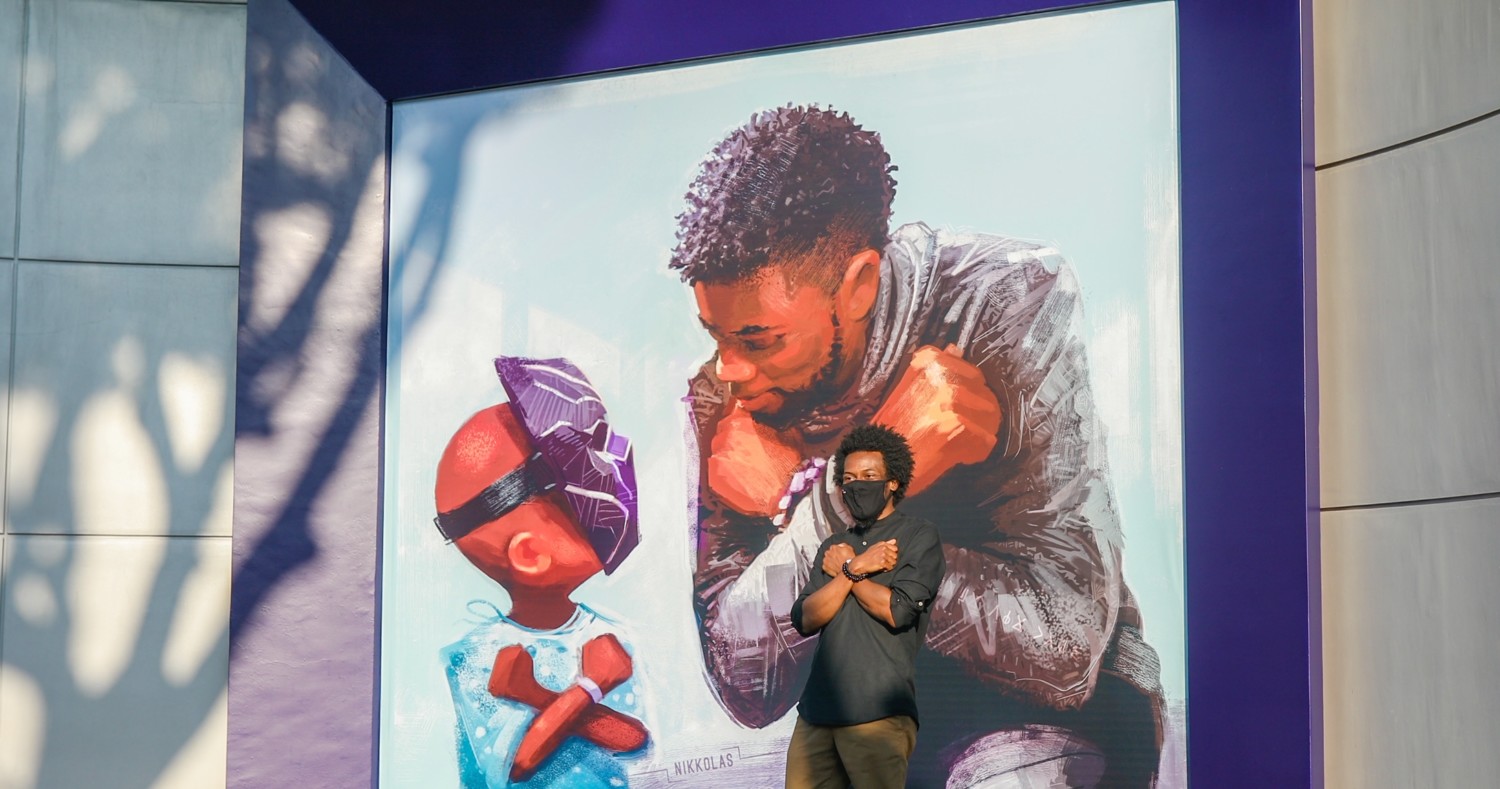Batman, Superman, Spider-Man. Ever notice anything in common? They’re all white dudes! But with characters like Black Panther representing African Americans; Wonder Woman representing women; and soon Ms. Marvel representing Muslim Americans – diverse characters are a super powerful force in comic books. Read on as acclaimed comic book creator Andre Owens shares how diversity in comics is changing, and why it’s so important.
Inclusion
First, Andre underscores the value and influence of inclusion. “Back when I was a kid, there weren’t a lot of comics featuring black characters on the stands,” says the writer. “You’d see things like Black Panther, but even as a kid I wasn’t aware he was black because he wore a mask all the time. When you see someone that you can identify as the hero that looks like you, it’s inspirational and it’s aspirational.”
Andre says the character who inspired him most was Tyrock from Superboy starring the Legion of Super-Heroes. “It just jumped off the comic book rack to me, because there’s this guy that looked like me, and he was shaking his fist at Superboy and telling him he’s not going to join his group,” recalls Andre. “For me it was like, wow! Here’s a guy that looks like me that’s standing up to Superboy.”
And characters like Professor X from X-Men go beyond racial inclusivity by giving a voice to people with disabilities. “Because he’s in a wheelchair, [people can] identify with that character; having that representation really makes a lot of difference in people’s lives,” adds the creator.
New Genres
Next, diversity creates new genres – one of the trendiest of which is Afrofuturism. “Some people like to call it black speculative fiction,” Andre explains. “It’s a place where black creators get to explore the world, showing black characters surviving in a future [with] African characters, like in my series Force Galaxia.”
In the literary world, Afrofuturism is so hot because this unique subgenre makes for groundbreaking media that stands out in a sorely needed way. “So often you see these movies, you see shows, and you may have one black character, and you’re wondering, well, what happened to everyone else? In this genre, we’re allowed to tell those stories of what happened to everyone else,” Andre emphasizes.
Unique Stories
And the third reason comic books have a duty towards diversity: they feature stories that teach you about different walks of life. “I think it creates more unique stories in the sense that they’re coming from a place where the cisgender white male doesn’t know about,” offers Andre.
Northstar, a character from X-Men, is one of the first openly gay superheroes in American comic books. “Without any kind of stereotypes to him, he was accepted as who he was,” informs Andre. “And me, as a young straight boy in the ’80s, seeing that character allowed me to understand a lot about the community.”
As you can see, diverse characters make comic books more compelling for everyone! And as the entertainment world takes steps to be more inclusive, hopefully that means what we watch and read will be an accurate reflection of America’s diversity.
Originally written by Orlando Morales for The List.
RELATED: 3 Powerful Lessons from Groundbreaking Black Managers







